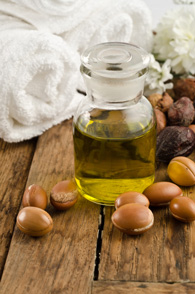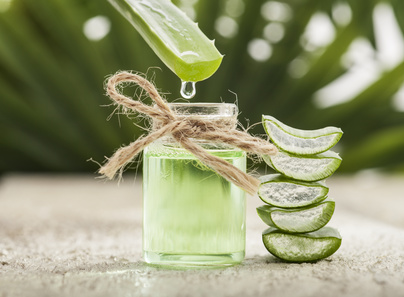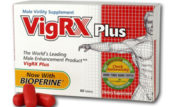 Skinception argan oil is one of the hottest-selling products here at Natural Health Source and with good reason. Natural oils like argan have many applications – from skin moisturizer to nail strengthener. Many clients find it even helps them save money because it reduces the need for a traditional moisturizer and hair conditioner.
Skinception argan oil is one of the hottest-selling products here at Natural Health Source and with good reason. Natural oils like argan have many applications – from skin moisturizer to nail strengthener. Many clients find it even helps them save money because it reduces the need for a traditional moisturizer and hair conditioner.
And it’s the latter point that we’re talking about today – natural oils for hair – that nourish the scalp, encourage hair growth, reduce greys and generally make hair a lot more manageable.
You really can’t go wrong with using natural oils to condition your hair. More studies link both skin and hair care products to potentially harmful ingredients. The rich antioxidant content in many of the oils described here should be of interest too – argan oil is rich in sun damage-fighting polyphenols and has over twice the vitamin E found in olive oil.
Different Oils For Different Hair
With this being said, you’ll want to choose the right natural oils for your hair type. Some products, like argan oil, work for just about anyone, but as a general rule of thumb:
Normal Hair – This is not greasy or dry. Normal hair is easily manageable and tends to hold both style and shine. Jojoba, almond, coconut and amla oils work best if you’re lucky enough to be in this category.
Dry Hair – Dry hair is often dull, easily tangles and gets split ends – you’ll want an oil that stimulates the sebaceous glands to increase oil production. Think almond, jojoba, coconut, sesame, mustard, pomegranate seed and cocoa butter oils.
Oily Hair – The opposite problem. Oily hair looks greasy. That’s because the sebaceous glands make too much oil, which you might regulate with olive oil or oils from sesame or jojoba. Note however that people with excessively greasy hair should not use these natural oils for risk of making it worse. Ask your hairstylist for more information.
Dandruff – Many folks find that tea tree oil and grapseseed oil are good natural remedies for dandruff.
Try These Natural Oils
The following oils are great for hair, whether that’s hair growth, as natural conditioners or simply to make it stand out and look radiant.
Argan Oil – You’ve no doubt heard of argan oil, dubbed ‘liquid gold’ by natural skin care pundits because it takes a full season of growth to make one litre of this exceptional hair conditioner. You can also use argan oil to protect hair from sun damage, treat frizzy hair or split ends.
Argan oil can strengthen brittle hair too, and folks with hair loss may find it cuts down on further breakage and encourages hair growth, which is always a good thing.
Coconut Oil – Great for dry hair, many folks swear by coconut oil to give shine to their locks. Coconut oil helps regulate natural hair oil production, so you’re neither too dry nor greasy. It’s great for the scalp as well – this isn’t a pharmaceutical made in a lab, after all!
Grapeseed Oil – Odorless, non-greasy and one of the best natural sunscreens out there, grapeseed oil has both vitamin E and linoleic acid, which strengthens hair and repairs damage. Along with tea tree oil, grapeseed oil is a good natural remedy for dandruff. Pomegranate Seed Oil – High in antioxidants and a hair-friendly nutrient called punicic acid, pomegranate seed oil repairs damaged hair and is great for folks with dry scalp. In fact, many hair products use pomegranate seed oil for that reason. You may get more benefit out of pomegranate seed oil with an undiluted application.
Pomegranate Seed Oil – High in antioxidants and a hair-friendly nutrient called punicic acid, pomegranate seed oil repairs damaged hair and is great for folks with dry scalp. In fact, many hair products use pomegranate seed oil for that reason. You may get more benefit out of pomegranate seed oil with an undiluted application.
Tea Tree Oil – A great natural remedy for dry, itchy scalp, tea tree oil has both anti-bacterial and anti-fungal properties. Add it to a home made shampoo, conditioner or even just your regular hair cleaning products for healthier hair.
Shea Butter – A mainstay among natural skin care products, shea butter gets the job done as a natural hair product. It’s a cinch to use as well – just warm it up and apply to your scalp.
Amla Oil – Sometimes called ‘indian gooseberry oil’, amla oil is a natural hair conditioner with hair growth properties. Folks also use amla oil to reduce dandruff because helps restore pigmentation – meaning you can even use amla oil to reduce premature grey hair.
How to Apply Natural Oils to Your Hair
A few tips for applying these natural oils for best results:
Use Lukewarm Oil – Heat it until it’s lukewarm – but not hot.
Dip Fingers From One Hand in the Oil – Part your hair with one hand, and apply the oil with your oily fingers.
Massage, Don’t Pour – Pour the oil on your head and your hair will just get greasy, requiring more shampoo to get it out. Massage it on your scalp, with your fingertips, instead, for more control and better results.
Don’t Rub Hair With Your Palms – Rubbing can lead to breakage. Massage the oil into your scalp instead, preferably from 10 to 15 minutes, to maximize blood circulation.
Note there are some natural oils that may reduce hair loss.
Leave it in Overnight – Just like you’d do with hair conditioner, leave some oil in your scalp overnight and wash it out in the morning.
Steam Your Hair – Trap steam in your scalp after oiling with a towel wrappd around your head. This helps your scalp absorb the oil. Leave it on for 10 minutes. The towel should not be hot because too much heat can damage the hair shaft.
Oil Frequently – Try to do it at least once a week, and more often if you’re up to it, with a few caveats. Oiling hair may not yield great results in climates with high humidity. The same goes for people with oily skin. Folks who work outdoors should rinse their hair of these natural oils first because oily hair attracts dirt and particles – both of which can lead to breakage.
Folks who work outdoors should rinse their hair of these natural oils first because oily hair attracts dirt and particles – both of which can lead to breakage.
Finally, if you’re a fan of argan oil, try to avoid ‘Moroccan Oil’, which is often diluted and mass produced in factories. Opt for ‘Argan Oil‘ instead, made by the Berber women of Morocco – who perfected the technique of argan oil extraction over 3,500 years. Not only does this preserve the nutrient integrity of the product, it’s more likely to be made in a fair trade co-op, with health and eductional opportunities for the women and their families.
It’s good for your hair and the planet as well.
Don’t feel limited to argan oil though. All the natural oils described in this article are great for your scalp and can address a variety of hair-related issues, from dryness to greys and, yes, even hair loss. Do it with these natural oils – without those often-harsh chemicals found in traditional shampoos and related hair products, and your scalp will thank you with prosperous locks.




